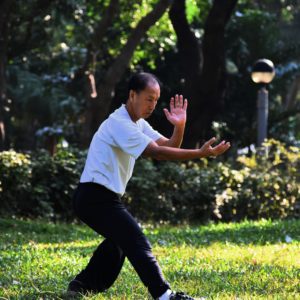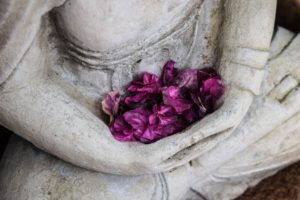by Jenny Rose | Jul 12, 2018 | Emotional Intelligence, Feelings
I’ve been thinking about loyalty recently. Loyalty is one of my bigger rabbit holes. I most often use the term when I’m beating myself up. A nasty little internal voice frequently hisses “Disloyal!” in my ear. This happens so constantly, in fact, that I’m bored. I’ve decided to unpack the concept of loyalty, spread it out, let the cat sniff at it, and either own my own disloyalty without shame or permanently silence that particular internal accusation.
The first thing I notice is I want to be loyal. Loyalty is a virtue. Good, loving people are loyal. I certainly want to be a loyal family member, friend and partner. Loyalty has always been an important part of my identity, which is why it’s such an effective lash for me. What’s more shameful and ugly than disloyalty?
I don’t want to be shameful and ugly. If I am shameful and ugly, I certainly don’t want anyone to find out.
Loyalty, then, is something that depends on what onlookers think about my behavior and choices.
Before I’ve even crawled into the mouth of the rabbit hole I’ve moved out of my power. Interesting.

Photo by Kevin Quezada on Unsplash
Recently, I took my morning cup of tea and spent two hours with dictionary, thesaurus and my laptop looking at poetry, quotes, memes, definitions and articles. I read about families, patriotism and dogs. I discovered 80% of results returned for a search on loyalty have to do with manipulating customer and product loyalty. Of course. What a world.
At the end of that two hours, I felt no wiser. I had some notes, but I still didn’t have a clear idea of what loyalty really is, what it looks like, what it feels like to give or receive it, and how it overlaps with trust, authenticity, truth, enabling, coercion and control. I can point to people in my life I feel loyalty for, and I can point to people who I feel are loyal to me, but the truth is I don’t trust myself on this issue. Maybe my confusion means I am, in fact, shamefully disloyal. A humbling and humiliating thought.
At the same time, would I feel so torn apart by family and personal social dynamics if I was thoroughly disloyal? My sense of loyalty to others has given me much anguish over the years. Surely if it was absent in me I wouldn’t struggle so hard with it.
Simply defined, loyalty is a strong feeling of support or allegiance. That definition leaves me even more clueless than I was before. It has to be more complicated than that, doesn’t it?
Well, doesn’t it?
Is it just me, or does the cultural definition of loyalty consist of a much more convoluted hairball of expectations, assumptions and false equivalencies?
I often use back doors when I feel stuck. My two hours of research did give me some ideas about what loyalty is not, at least in my mind. But already I can see others might disagree. Still, that’s why we have dictionaries and definitions.
Loyalty cannot be slavery or prostitution. If I have to compromise my integrity in order to fulfill someone else’s expectation of loyalty, it’s no longer a virtue, but an abuse and manipulation. True loyalty must be freely and heartfully given. Authentic loyalty can’t be bought, sold, stolen or owed. It’s not demonstrated by obedience or compliance. If it’s not free and spontaneous, it’s only a sham, an empty word that sounds great but has no substance. Loyalty is not a weapon. It’s a gift.
Said another way, from a perspective of power (and you know how much I think about power!), loyalty is a tool of power-with, not a weapon of power-over.

Photo by Seth Macey on Unsplash
Loyalty is not blind. Part of its value is its clarity. We prize it so highly because seeing and being seen clearly, warts and all, and demonstrating or receiving loyalty in spite of it is an act of strength and love. In that case, compassion, tolerance and respect are all involved in loyalty. It follows, then, that loyalty does not require agreement. I can feel entirely loyal to a loved one while disagreeing with some of their choices and beliefs.
Loyalty does not imply denial, arguing with what is or colluding in rewriting history in order to sanitize it. Loyalty is not a right or an obligation.
In fact, the thesaurus suggests the word “trueness” as a synonym for loyalty. Interesting. Isn’t trueness the same as authenticity? I count on those who are loyal to me to tell me the truth of their experience with me and of me. I count on them to trust me with their thoughts, feelings, concerns and observations. I count on them to ask me questions about my choices, and to forgive me when I’m less than perfect. I hold myself to the same standards. This can mean a hard conversation now and then, and uncomfortable vulnerability and risk, but real loyalty is not cheap.
The thesaurus also supplies the word “constancy” as a synonym for loyalty. Constancy is an old-fashioned word these days, but it leapt out at me because consistency is very important to me. I’ve had some experience with Jekyll-and-Hyde abuse patterns in which the goalposts and rules constantly change without notice, keeping me nicely trapped in trying to please people who have no intention of ever being pleased no matter what I do. Loyalty is present one day and absent the next, then present again, then unavailable. That kind of “loyalty” is an abuse tactic.
As always, the construct of loyalty is two-sided. There’s the loyalty that extends between me and another, and then there’s the loyalty I extend to myself. This circles back around to slavery, prostitution and silence. If I have to betray my own needs or make myself small in order to earn or retain someone’s loyalty, something’s very wrong. If I’m called disloyal for saying no, having appropriate boundaries or telling the truth of my experience, then we are not in agreement about the definition of loyalty or I’m being manipulated (again). How loyal can I be to others if I fail to be faithful to myself?
True loyalty will never require me to make a choice between myself and another. Loyalty is strong enough to compromise and collaborate.
Loyalty becomes weaponized when we demand or command absolute agreement, devotion and unquestioning support. Then the concept becomes very black and white. This is demonstrated all over social media and media in general. One unwanted question or view leads to unmerciful deplatforming, silencing and a torrent of threats and abuse. Our loyalty is questioned and tested at every turn. We allow bullies, tyrants and personality-disordered people to achieve and maintain control, terrified of tribal shaming, being unpatriotic or being cast out of our social groups and communities.
The label of disloyalty is extremely powerful, but when I strip away all my confusions and distortions around loyalty and return to the simple definition, it’s not complicated at all. I certainly feel a strong allegiance and support for many individual people, for my community, for my country, for women, for writers, for this piece of land I live on, and for myself.
I suspect many others would like me to wear the label of disloyalty, but I can’t do a thing about their distortions except hand them a dictionary. Very elitist behavior, I’m sure you will agree. Not to mention the disloyalty of refusing to collude in my own shaming.
Being called disloyal doesn’t make it so.
That voice in my head has to do better, find a new slur. I’m willing to own being disloyal if I am, but my conclusion after this investigation is mostly I’m not, and when I am, my greatest trespass is against myself. That I can do something about.
Loyalty. Setting down the weapon. Picking up the tool.

Photo by David Beale on Unsplash
All content on this site ©2018
Jennifer Rose
except where otherwise noted
by Jenny Rose | Jun 28, 2018 | A Flourishing Woman, Body
After years of interest, last autumn I finally found a Tai Chi teacher. I approached learning Tai Chi with hopes and expectations about the benefits it could provide, but I was unprepared for the power of the practice and how important it would become in my life.

Photo by Mark So on Unsplash
Tai Chi is a form of Chinese martial art intended to teach defense and support health. It’s a multilayered practice, elegantly complex. Learning the gross motor movements is only the first baby step. One layer is connected to and leads to the next. Tai Chi is not a linear activity to learn from beginner to master, but a dynamic, fluid practice best approached with humility every time. It’s constantly challenging in new ways, depending on what my state of mind, body and spirit is on any given day.
The Tai Chi I practice is called 24 forms, all of which gradually blend into one smooth, flowing whole with practice. The forms have delightful, poetic names like The Crane, Windmills and Clouds.
Tai Chi is about finding one’s center, physically and emotionally, and building on the strength and balance residing there. In order to facilitate this, one crouches slightly with bent knees throughout the whole routine. This is obviously quite challenging, and for some people impossible. However, with proper foot position, body dynamics and a crouched stance, we can immediately feel the solid, stable center at the core of every Tai Chi form. Crouching for long periods of time immediately informs us about the strength of our ankles, knees, hips, hamstrings and quadriceps, information we might not otherwise receive as we move upright through the world.
Crouching assists with balance because it lowers the center of gravity. Many people take up Tai Chi to support balance issues, in fact. Several forms require balancing on one foot or another with the supporting knee bent. This, too, can be unexpectedly challenging. Once again, our body has a story to tell we might not otherwise hear as we move normally. I’ve always been aware I have sloppy posture, but I’ve been habitually lazy about doing much about it. Tai Chi demands I stack my bones on top of one another and tuck in my tailbone. If I don’t do that, I can’t balance. I notice I now move through the rest of my life standing tall, with more grace and confidence and better posture. I don’t slump, crowding my lungs and abdominal organs. I don’t tilt or lean. I know where my pelvis is and I stay over it. My back is happier. I feel better.
Every movement counts in this practice. Each foot is placed just so in order to support a fully centered crouched stance. Shoulders, wrists and elbows stay in line with several of the forms, which necessitates holding arms straight out from the shoulder. My arms ached for months as I built strength, and I’m a strong swimmer who works out in the pool once a week. One form requires placing toes down and heel up, and another the heel down. At times we turn on our heel, and at other times our toe. In one form we turn one foot on the heel and the other on the toe at the same time. Everything about Tai Chi leads me inward on a spiraling journey of deeper focus and mindfulness.

Photo by Ludde Lorentz on Unsplash
It’s amazing to practice over time and begin to feel the forms smoothing out into a cohesive routine with some kind of elegance and grace. Such fun and so rewarding. Then, however, the instructor started to talk to us about our eyes. It turns out every form requires a very specific eye gaze, often on our hand movements. I was doing well with balance, but when I took my gaze off the middle distance and looked at my hand in front of my face, I lost my balance. This was advanced balance. I added in the appropriate eye gaze and started all over again with balance.
Then, the teacher began to talk about breathing. Crap. I hadn’t even thought about my breathing! Breathing is connected to energy, and Tai Chi was originally a practice for working with energy as well as defense. All the forms have to do with pushing, pulling, deflecting or defending. Now that we had some mastery of the physical challenges, we began to work on feeling our field of energy and moving it with our bodies and breath. A push is an exhalation. A pull is an inhalation.
Breathing then leads to pace and rhythm. We practice Tai Chi to meditation music — very slow. Balancing on one leg is not so hard when you do it for two or three seconds. Balancing for sustained periods of time, especially with a bent knee, requires a lot more strength and, well, balance! Every movement takes far more concentration when slowed down. This is one of the few activities I’ve ever done where the goal is to slow down. We seem to be running faster all the time, overstimulated, overscheduled, multitasking, trying to earn more money, perpetually on call via technology. We’re all in pursuit of … something. What? Does anyone ever find it? Is it worth the cost of the chase?

Photo by Chris Ensey on Unsplash
Tai Chi demands we slow down. In that slowness we discover our fatigue, our aches and pains, our half-healed injuries, our distractions and our distress and unmanaged feelings. We remember our center. We recover our balance. We make time to breathe.
Some people call Tai Chi a moving meditation, and I now understand why. When I’m practicing Tai Chi, I’m not doing anything else. When I’m walking or swimming my mind goes right on with whatever it’s busy with. Those activities are good for creative inspiration, prayer and processing feelings. Tai Chi, though, takes me to a deep, restful, quiet place of no thought, focus and present mindfulness, so rich and so empty. It opens the door for awareness, too, of the degree to which I’m captive to distraction. The instant I’m distracted by a sound or a stray thought, I lose my balance and center, I lose my breath, I lose the flow and I don’t know where I am in the forms. I think of myself as fairly focused, but I’m just as susceptible to distraction as anyone else, and I don’t want my life to become an uncontrolled blur of noise and stimulation in which I forget there’s anything but distraction. Tai Chi brings a precious and necessary balance into my days.
All these layers have brought health and healing into my life, but the greatest grace Tai Chi brings me is the opportunity to be in the body. I’m saddened by the ever-more strident body politics in our culture. I don’t remember a time in my life when it seemed so many people were locked in self-hatred and hatred of others based on some kind of physical characteristic. It reflects in our suicide and addiction rates, and it touches each one of us. We no longer honor the sacred feminine and masculine, we have few invitations to fully inhabit ourselves physically, and no one encourages us to honor and respect our physical form as it is.
Just like dance, Tai Chi calls us home to ourselves. My home is not nipped, tucked, plucked, lipo-suctioned, dyed, shaved, made-up, compressed, surgically reconstructed or uplifted. My home is my oldest friend, my most loyal companion, the loyal record keeper and diary of childbirth, breast-feeding, menopause, a lifetime of Colorado sun, slipped kitchen knives and barbed wire fence. My home is lines and wrinkles, lumpy thighs, softened breasts, grey hairs and thinning skin. This amazing, adaptable, resilient, hard-working body is the shelter and haven for my spirit.
I often move a chair aside, open the windows, take up the sheepskin rugs lying on the wide plank floor in my attic space, shut the door at the bottom of the stairs, turn on music and take off my clothes to practice Tai Chi. I like to look down at my bare toes and toe ring on the sloping grey-painted floorboards. I like to glance at my strong knees and make sure they’re in line with my heavy ankles. I like the gentle slope of my belly, cross-hatched with silver stretch marks, under which two children grew into life. I like to stack my bones carefully, tuck in my tailbone and feel the subtle realignment that opens up my center and my balance. I like the clench, pull, stretch and relaxation of my muscles. I like the combination of strength and loosening skin and flesh as I move my arms. I’m grateful for the ability to breath deeply, and the ability to sweat. I relish the air coming in the windows and touching my bared breasts.
We started with a large Tai Chi class, and over the weeks and months people dropped out, one by one. I suppose for some it wasn’t a good fit. For others it wasn’t a priority. Still others were discouraged by their physical limitations, in spite of the fact that the instructor was and is eager to modify the practice to accommodate anyone. One lady had trouble with balance but was unwilling to stand next to a chair for safety and support. Others were ashamed of their weight, their muscle weakness and/or learning a new thing in public. It made me sad. I think many would have benefitted if they could have moved past their shame and self-consciousness, and if they’d been willing to work with their physical reality instead of resenting and arguing with it.
Our Tai Chi group is small now, but we’re good friends. We laugh a lot. We learn from one another. We greet and part with hugs and affection. We enjoy the music; share our distractions, worries, aches and pains and support one another in centering, grounding, calming and mindfulness.
I’m entirely grateful.

Photo by Biel Morro on Unsplash
All content on this site ©2018
Jennifer Rose
except where otherwise noted
by Jenny Rose | Aug 25, 2016 | Power
Last month I posted about our power and ability to say both yes and no to others. This morning I’m thinking about another level of yes and no; that is the yes and no we say to life. At this level, the term ‘consent’ is useful. Consent means to “give permission for something to happen,” according to a 2-second search on Google.
Consent is a huge and complex topic and there’s a great deal of discussion about different aspects of it. For the purposes of this post, I’m using consent in the widest sense; the way in which we approach life.
Several interactions this week have made me think about the mysterious difference between people who consent to learn and grow and those who don’t. When I think about my observations, and people I’ve known, it’s clear to me the difference between these two kinds of people has nothing to do with age, sex, money, education, employment, intellect or family. It has nothing to do with the color of our skin or the god(s) we worship, or where on the planet we live, or what kind of horrors we might have endured.
I’m acquainted with a writer who sent me a piece in praise of stubbornness, a quality she admires (as do I) in herself and others because to her it means a determination to survive and do well, regardless of limitations, real and perceived. (Thank you, A!) We might mean the same thing by consent and stubbornness, or close to it. I see the ability to consent to learning and growth, over and over, no matter how many times we’re knocked down and cut off, as a kind of stubbornness — a refusal to give up, to close down, to conform to something that doesn’t work for us.
Without even trying I can identify seven people in my life, past and present, who don’t consent to the experience of life, the flow, the dance, the mystery and uncertainty, the synchronicity and the billions of invitations that arise for exploration, connection, understanding, growing and being.

Photo by Alex Iby on Unsplash
These folks are easy to spot. They resist. They argue with what is. They deny, distract, fall into various addictions. They don’t communicate effectively. They care about winning, being right and power-over. They have rigid stories and expectations. Everything that happens to them is a personal insult or a crisis. They’re victims. A good, deep question is a grave threat. To my eyes, they look miserably unhappy. They repeat the same patterns, over and over, dying a little more with each fruitless repetition. They do not consent. They refuse.

Photo by Cristian Newman on Unsplash
Every single one of the seven people I’m thinking of has had opportunities to learn, to grow, to change, to make different choices. They all had people in their lives who loved them and had information, tools and skills that might have enriched them. They all had people in their lives who valued them and wanted their contribution. They each had at least one person in their life who would have done anything to support them in learning and growing, and that person was me.
Most of those relationships are behind me now, because I have this unforgiveable quality of consent. My life now is based on the why, the what if, the whose rule is that, the help me understand. My life is about teach me, show me, share with me and what do you think? My life is about doing more of what works and letting the rest go. People who refuse and people who consent invariably have friction, because their needs are opposite. There’s just nowhere meaningful to go.
People who consent are not perfect or perfectly happy people. On the contrary, their lives have been filled with mess and miscalculations, abuse, addictions and other painful experiences, but they’ve learned from everything and everyone. People who consent don’t look at their lives with bitterness or frame things as mistakes. They see teachers, opportunities and fascinating things learned and yet to learn. People who consent are endlessly curious. They think about what they don’t know and question what they think they do know. They seek the hidden thing. They’re more likely to ask questions than proselytize or lay down the law. They’re not interested in power games or being right or winning. They seek to understand, to explore, to exercise choice, to manage their own power. They can laugh at themselves. They can and do say no, but they say it to protect their integrity and needs, not to shut out or control life.
People who consent choose happiness. That’s the most important one for me. I’m still reaching for that. I’ve always been a person who consents, but I’ve also chosen to stay limited in many important ways. As I’ve learned to discern between refusal and consent, I see that living life from a state of consent results in joy. Again, it’s got nothing to do with age, beauty, money, status or any of the things that the culture says we’re defined by. Joy, at the end of the day, is a simple thing, arising out of being at peace with this wild ride we call life. Joy is consenting to surrender, consenting to feel and experience, consenting to feeling fear and doing it anyway, consenting to give up trying to control the things we can’t control. Joy is composed of tears, blood, loss and disappointment, pain and growth. We already have it. It’s here, sitting on your shoulder as you read this and mine as I write.
All we have to do is consent.

Photo by Evan Kirby on Unsplash
All content on this site ©2016
Jennifer Rose
except where otherwise noted









